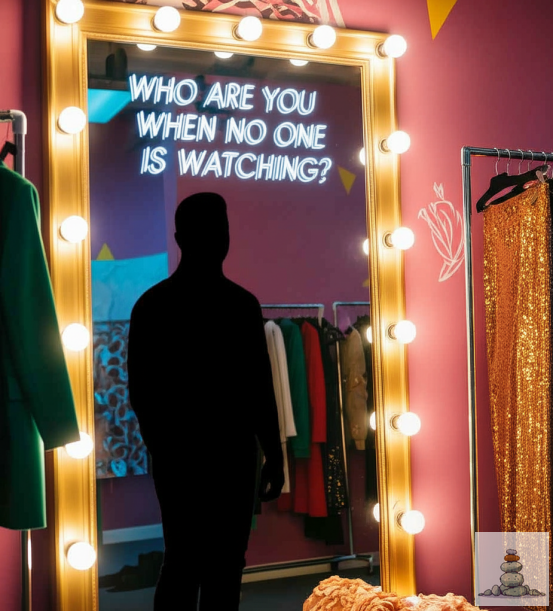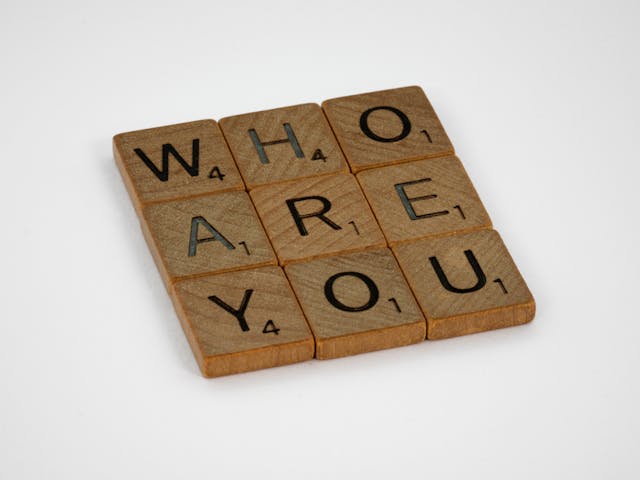Wearing masks isn’t a new phenomenon. In a world that celebrates curated identities and socially acceptable facades, the concept of “wearing masks” has become more than a metaphor—it’s a survival tactic. We wear them at work, in relationships, even alone. We learn to perform, believing the show matters more than being real. Sociologist Erving Goffman taught us that every social interaction is a performance, with “front stage” personas tailored to fit the setting. We pretend, perform, and project what we think others want to see. But after a while, it starts to wear us down.
In 2025, this performance pressure has reached a cultural tipping point. Brands that rely on hollow messaging and forced values are quickly dismissed. The ones that resonate build loyalty by showing genuine purpose at every touchpoint. People can spot insincerity in a heartbeat—whether it’s a company’s values campaign or our own practiced smiles that no longer feel like us.
Taking off the mask is risky. It means being seen in a world that often rewards polished sound bites and smiling snapshots.
Wearing the Mask: Performance as Survival
Carl Jung coined the term “persona” to describe the protective façade we wear in social settings. In 2025, the pressure to maintain this mask has intensified, as remote and hybrid work increasingly blend our public personas with private realities. The American Psychological Association’s trends report warns of the mental toll of emotional labor—the internal friction we experience from playing roles that contradict our true selves.
Ask yourself: When was the last time you let your sorrow, anger, or doubt flow freely—without apology?
Social conditioning teaches us which emotions are acceptable and which ones are best buried. To belong, we absorb cultural and organizational norms, often unconsciously reshaping ourselves to fit expectations we never consciously chose.
The Psychology of Performance
Performance isn’t inherently inauthentic. In fact, cognitive dissonance theory suggests that we often align our beliefs with our actions—making the mask feel like part of us. We learn to modulate our tone, curate just the right amount of vulnerability, and time stories for maximum social impact. These skills earn us praise, approval, and access to curated circles of influence.
But as more people seek depth over performance, a new movement—digital deceleration—is emerging. Individuals are unplugging, seeking offline connection, and reevaluating what genuine presence looks like.
What parts of your day feel scripted? Which moments yearn for raw, unfiltered attention?
Small Acts of Rebellion: Reclaiming the Self
Psychologist Carl Rogers emphasized unconditional positive regard—radical acceptance of oneself. In today’s hyper-curated world, this starts with small rebellions: letting your early-morning thoughts spill onto paper before they’re filtered for the world. Saying “No” to obligations that serve others but drain you. Recognizing that disappointing someone isn’t the same as betraying yourself.
What boundaries have you delayed setting, and what parts of your identity are waiting to breathe once you set them?

Building Authentic Confidence: The Bandura Way
According to Albert Bandura’s self-efficacy theory, mastery isn’t born from perfection but from genuine trial-and-error. When you admit uncertainty in casual conversations or speak unfiltered in safe environments, you build the courage for deeper authenticity. These seemingly small moments build resilience, teaching you that being real is not a liability—but a strength.
How do others respond when you let go of performance? And how does your own body react when it’s freed from constant calibration?
Embracing Duality: Mask vs. Essence
There’s wisdom in the mask—it helps us navigate complex social terrain. But the danger lies in forgetting where the mask ends and the self begins. This year, authenticity has become a cultural currency, earning trust in boardrooms, living rooms, and digital spaces alike.
The persona might protect you, but it isn’t you. Your truest self lives beneath the script, unafraid to be seen without applause, clicks, or performance metrics.
Step off the stage, even if just for a moment. Breathe, exist, listen. That’s where your creativity, empathy, and power reside.



